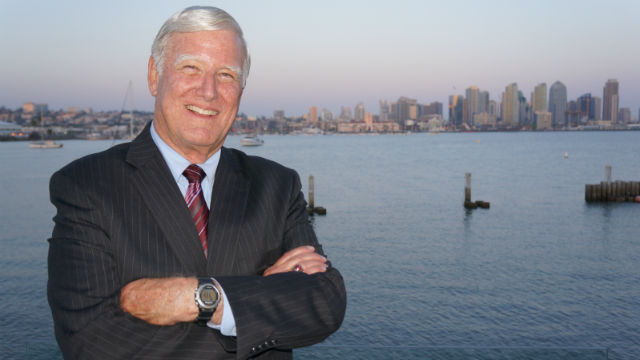
Brother Greg Cox (Gamma Theta/San Diego State 1970) was recently appointed by the White House to serve a two-year term on the National Ocean Council’s Governance Coordinating Committee. The Governance Coordinating Committee (GCC) includes 18 state, local, and tribal representatives from across the United States. The members serve as a coordinating body on inter-jurisdictional ocean policy issues, and bring diverse experience on state, local, and tribal policy issues and are a critical component of the National Ocean Council.
Assistant Editor of The Rattle, Kelly Jones, spoke to Greg Cox about his appointment.
Q: What was your reaction when you learned that you had been appointed to this position?
A: It was an honor to learn that the White House selected me to serve on the National Ocean Council’s Governance Coordinating Committee as a representative of local government. When I first got involved in local government to help my community, I would have never guessed that I would be advising the White House on National Ocean Policy. I’m excited for the work ahead of me.
Q: As a member of the National Ocean Council’s Governance Coordinating Committee, what will the appointment require of you?
A: The National Ocean Council is responsible for implementing National Ocean Policy, and the Governance Coordinating Committee helps resolve conflicts among ocean users and helps to plan across multiple levels of government for management, stewardship and preservation of healthy ocean environments.
Q: Do you think that being a member of the California Coastal Commission will aid you in your position with the National Ocean Council’s Governance Coordinating Committee?
A: Absolutely. The ocean doesn’t adhere to artificial boundaries that we humans have drawn on a map so when we’re talking about the ocean I try to look at everything and that includes pulling from my experience serving on the California Coastal Commission.
Q: What other qualifications do you bring to the committee?
A: In February 2013, as Chairman of the San Diego County Board of Supervisors, I gave a speech on the State of the County aboard the USS Midway Museum, and I declared that San Diego’s Blue Economy would be the next big thing. Today, San Diego has the largest BlueTech Cluster in the country and that includes companies doing some very exciting things with underwater robotics, desalination, aquaculture, conservation and yes, even surfboards. So I’m approaching this with a passion for further developing technologies and partnerships that are good for both the environment and the economy. I believe strongly there has to be a balance.
Q: What would you like to see the National Ocean Council Governance Coordinating Committee accomplish during your two-year appointment?
A: There are two regions on the East Coast that are very close to finalizing their marine spatial plans, or ocean plans, for future uses of the ocean. The development of these plans is one of the hallmarks of President Obama’s National Ocean Policy so I would like to get those completed within the next two years. If successful, it would mark the first ocean plan ever adopted in the United States but it would also reduce conflicts among different ocean users and conservation advocates.
Q: Has being a member of Theta Chi had an impact on your adult life?
A: I enjoy being active in the Theta Chi alumni network not only to preserve old friendships but also to make new ones as well. It’s probably safe to say that none of us would be who we are today without the Theta Chi experience.
Q: Is there anything that you would like to add?
A: As a native Californian who has always resided just a few miles from the coast, I’ve always felt a strong connection to the ocean. Our planet and our way of life is dependent on a healthy ocean. I don’t think anyone sets out to destroy the ocean, so I think the question becomes how do we plan for the sustainable use of ocean resources in a way that grows the economy and protects sensitive resources for future generations.
The United States has sent more people to the moon than have been to the bottom of the ocean. There is so much more to explore in the ocean – species never imagined before, underwater mountains larger than Everest, rare earth metals that power your cell phones, biopharmaceuticals – I’m excited to ride this wave.



